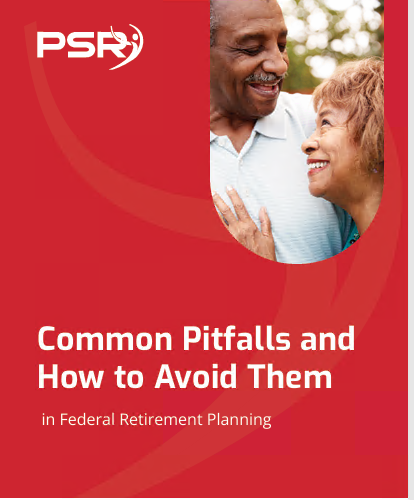CSRS Refund of Retirement Contributions
Federal employees under the Civil Service Retirement System (CSRS) contribute a portion of their salary toward retirement benefits. However, in certain situations, employees may request a refund of their CSRS retirement contributions. Understanding the CSRS refund eligibility and the refund process is essential for federal employees considering withdrawing their contributions after leaving federal service.
This guide will walk you through the CSRS refund of retirement contributions process, eligibility criteria, how to apply, and the financial implications of requesting a refund.
What is a CSRS Refund of Retirement Contributions?
A CSRS refund allows federal employees to withdraw the retirement contributions they made while working under the Civil Service Retirement System. This refund typically becomes an option when an employee leaves federal service before becoming eligible for a CSRS retirement annuity.
When is a CSRS Refund an Option?
You can request a CSRS retirement contribution refund if:
- You separate from federal service before being eligible for an immediate or deferred CSRS annuity.
- You do not expect to return to federal employment in a position allowing you to accrue CSRS benefits.
The decision to request a CSRS contributions refund should be made carefully, as it impacts your eligibility for future retirement benefits under CSRS.
CSRS Refund Eligibility Criteria
Federal employees who no longer work for the federal government and do not qualify for a CSRS pension may be eligible to request a refund of their contributions. However, there are several CSRS refund eligibility rules to consider:
- You must no longer be employed in a position covered by CSRS.
- You must not be eligible for an immediate or deferred CSRS annuity.
- You must apply for the refund using the appropriate CSRS refund application form.
Employees who rejoin federal service after receiving a CSRS refund may be restricted or required to repay their contributions to restore their service credit
How to Apply for a CSRS Refund
To apply for a CSRS refund, you must follow a set process, including completing the required forms and providing documentation of your separation from federal service.
Steps to Apply for a CSRS Refund:
- Complete the CSRS Refund Form: The CSRS refund of contributions form (SF-2802) must be completed and submitted to the Office of Personnel Management (OPM). This form requires personal information, your service history, and details about the amount of contributions you wish to withdraw.
- Submit Supporting Documentation: Along with the application form, you must provide documentation of your separation from federal service, including your resignation letter or proof of termination.
- Wait for Processing: After submitting your application, the CSRS refund process typically takes several weeks to months to complete, depending on the complexity of your case and OPM’s processing times.
- Receive the Refund: Once approved, you will receive a refund of your contributions during your federal employment under CSRS. Remember that the refund will not include interest, and taxes may apply.
Understanding the CSRS refund timeline is essential when planning your financial strategy after leaving federal service.
How to Calculate a CSRS Refund
The amount of your CSRS refund is based on the total contributions you made to the CSRS system during your federal service. These contributions were automatically deducted from your salary as a federal employee.
Factors that Influence the Refund Amount:
- Years of Service: The number of years you contributed to CSRS will directly affect the size of your refund.
- Contribution Rate: Your contributions are calculated as a percentage of your basic pay, typically around 7% to 8%.
- Interest on Refunds: CSRS refunds do not typically include interest unless the service period was less than five years but more than one year. In such cases, refunds may accrue interest at a rate of 3% compounded annually.
A CSRS refund calculator can help you estimate the refund amount based on your years of service and total contributions.
Tax Implications of a CSRS Refund
Requesting a CSRS refund may have significant tax consequences. It is crucial to highlight that the principal amount of the CSRS refund is not subject to federal taxes, but any interest paid on the refund is taxable in the year it is received.
CSRS Refund Taxes:
- The taxable portion of the refund will be reported on a 1099-R tax form, which you will receive from OPM.
- Consider consulting with a tax professional to understand the total tax impact of the refund on your annual income.
The tax implications must be considered when deciding whether to request a refund of CSRS retirement contributions.
CSRS Refund and Reemployment
If you leave federal service, receive a CSRS refund, and later return to federal employment, you may face additional requirements to regain your retirement benefits.
Impact of a CSRS Refund on Reemployment:
- Repayment of Contributions: If you are reemployed in a position covered by CSRS or FERS (Federal Employees Retirement System), you will typically be required to repay the refund plus interest to restore your service credit.
- Loss of Service Credit: Failing to repay your CSRS refund means that the service credit you accrued during your initial federal employment will not count toward your future retirement benefits.
Understanding the CSRS refund repayment rules is critical for federal employees considering reemployment in federal service after receiving a refund.
CSRS Refund vs. Deferred Annuity
Before requesting a refund of your CSRS contributions, it is essential to consider whether you are eligible for a deferred annuity under CSRS. A deferred annuity allows former federal employees to receive a pension at a later date, provided they have enough service years to qualify.
CSRS Refund vs. Deferred Annuity:
- Deferred Annuity: If you have five or more years of federal service, you may be eligible for a deferred CSRS pension. In this case, leaving your contributions in the system and receiving a pension in the future may be more beneficial.
- CSRS Refund: If you have fewer than five years of service or wish to immediately receive a deferred annuity, a refund may be the best option for accessing your contributions.
CSRS Refund After Leaving Federal Service
Federal employees who resign or are terminated from federal service before becoming eligible for retirement benefits can request a CSRS refund of their contributions. However, if you return to federal employment later, the refund can impact your service credit and future retirement eligibility.
For those planning to leave federal service permanently, the CSRS refund of contributions may offer immediate financial relief, but it comes with long-term consequences for your retirement benefits.
Is a CSRS Refund Right for You?
Deciding whether to request a CSRS refund is a personal choice that depends on your financial situation, retirement plans, and future employment goals. While the refund offers an immediate return of your contributions, it also means forgoing future retirement benefits under CSRS.
Before making a decision, it is recommended to consult with a federal retirement advisor. Advisors on this site can help you weigh the pros and cons of a CSRS refund, explore alternatives such as deferred retirement, and guide you through the application process.
Search for Public Sector Retirement Expert.
Receive the Best advice.
PSR Experts can help you determine if Public Sector Retirement is right for you or if you should look for alternatives.
The Best Advice creates
the best results.
Search for Public Sector Retirement Expert.
Receive the Best advice.
PSR Experts can help you determine if Public Sector Retirement is right for you or if you should look for alternatives.
The Best Advice creates
the best results.
Recent Articles

Divorce and Your Federal Pension—What Happens When You Split Assets and How It Could Affect Your TSP
Key Takeaways Divorce can significantly impact your federal pension


The Best FEHB Plans for 2025: Which One Fits Your Lifestyle and Budget the Best?
Key Takeaways: Understanding your healthcare needs and budget is

Special Retirement Options for FAA and LEO Employees: Are You Taking Advantage of What’s Available?
Key Takeaways: FAA and LEO employees have exclusive retirement






